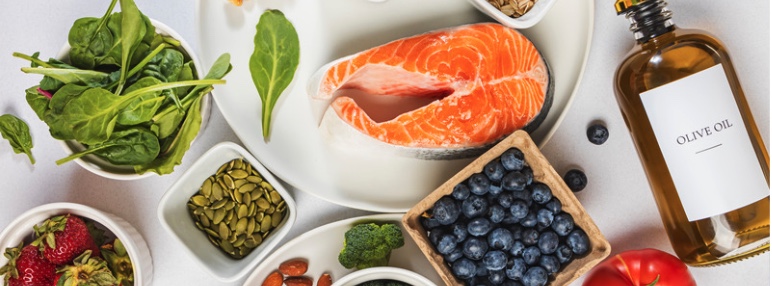Have you ever felt tired for no reason, struggled with joint pain, or noticed skin issues that just won’t go away? If so, you might be experiencing something more than just the usual ups and downs of life. The culprit could be chronic inflammation, a condition that silently affects many aspects of your health. But don’t worry—there are simple changes you can make to your diet and lifestyle to combat it. Let’s dive in!
What is Inflammation?
Inflammation is your body’s natural response to injury or infection. Think of it as a fire alarm—when there’s a fire (an injury or infection), the alarm (inflammation) goes off to alert you. However, just like a fire alarm that continues to ring even when there’s no fire, chronic inflammation lingers long after the initial injury has healed. This long-term state can cause serious health problems if not addressed.
Types of Inflammation
There are different types of inflammation. Acute and Chronic.
Acute Inflammation: This is short-term and important for healing. It helps your body fight off infections and repair tissue, like when you get a cut.
Chronic Inflammation: This can last for months or years, often without clear symptoms. It can lead to serious health conditions such as heart disease, diabetes, autoimmune diseases, and even mental health issues like depression.
Signs of Chronic Inflammation
Chronic inflammation can be sneaky. You might experience vague symptoms like:
Fatigue
Joint pain
Digestive issues
Brain fog
Skin problems
Headaches
Recognizing these signs is important because chronic inflammation gradually damages your body, leading to long-term health issues.
How Diet and Lifestyle Affect Inflammation
So now you’re asking yourself, “How can I adjust my diet to help with my inflammation?” Well, your daily choices can significantly influence inflammation levels. For example, diets that are high in refined carbs, added sugars, and unhealthy fats can worsen inflammation. This is like white bread, pastries, sugary drinks, candy, fried foods and processed snacks. These foods can lead to spikes in blood sugar levels and promote the release of inflammatory substances which may contribute to chronic inflammation. On the other hand, focusing on whole, nutrient-rich foods like fruits, vegetables, whole grains, buts and healthy fats can help keep inflammation at bay. It does this by providing essential vitamins, minerals and antioxidants that support the body’s natural defense mechanism. These foods not only nourish our bodies, but also reduce oxidative stress, making them a key component of the inflammatory diet.
Anti-Inflammatory Eating
So, what does anti-inflammatory eating even look like? Let’s talk about 3 easy steps to get started:
Increase Anti-Inflammatory Foods: Include more leafy greens, berries, nuts, and fatty fish in your meals.
Reduce Inflammatory Foods: Limit processed foods, added sugars, and fried foods.
Support Gut Health: Incorporate fiber-rich foods, prebiotics (like garlic and onions), and probiotics (like yogurt and fermented foods) into your diet.
Rethink Your Plate
Aim for a balanced plate filled with nutrient-rich foods. Here’s how you can rethink your plate:
Choose Whole Grains: Swap refined grains for whole grains like quinoa, brown rice, or whole wheat bread.
Opt for Plant-Based Proteins: Try legumes, tofu, or lean meats like poultry and fish instead of processed meats.
Focus on Healthy Fats: Use olive oil, nuts, and avocados instead of trans fats found in fried and processed foods.
Simple Changes Make a Big Difference
The best part? Small changes can lead to significant health improvements. Here are a few actionable tips to get you started:
Start Your Day with Berries: Add a handful of berries to your breakfast for an antioxidant boost.
Snack on Nuts: Replace sugary snacks with a handful of nuts for a satisfying and anti-inflammatory treat.
Hydrate Wisely: Drink plenty of water and herbal teas instead of sugary beverages.
Take Charge of Your Health
Chronic inflammation can lead to serious health issues, but you have the power to change that! By focusing on adding anti-inflammatory foods to your diet, reducing processed foods, and supporting gut health, you can naturally manage inflammation and improve your overall well-being.
Next Steps
Are you ready to take control of your health? Start by making one small change in your diet today. Share your journey with us in the comments below or follow our blog for more tips on living your healthiest life!
If you have any questions or want to connect, visit our contact page.
